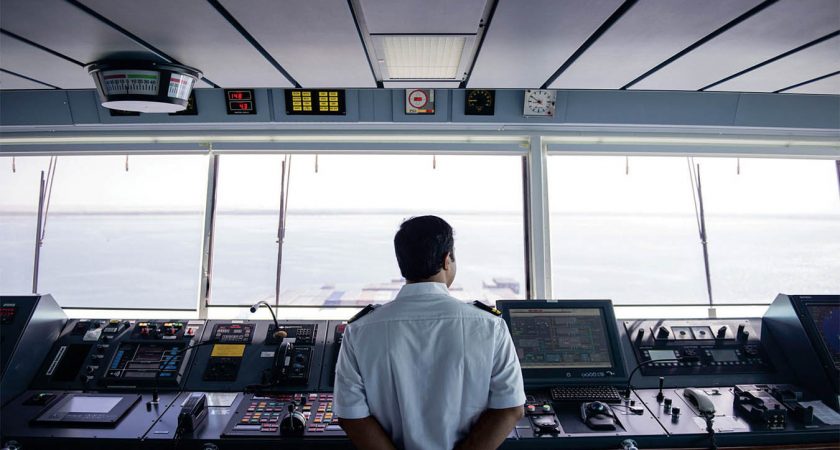What is Merchant Navy?
Merchant Navy is a special Naval Service which is dedicated to international trade, their prime duty is to carry cargo across the globe. The merchant ships or vessels have a large number of workers to run, operate maintain the ship and deliver goods from one port to other. We can say that if there were no Merchant Navy, the import-export business would come to a standstill.
Merchant Navy Offers a lucrative career as one gets a perfect work life balance. For the time you spend on sea you are compensated with Time offs for family. This is a challenging career for those with strong nerves, especially when it comes to seas one must be a real traveler and explorer to bear the isolation. It provides amazing opportunity to visit newer destinations all around the globe.
Eligibility Criteria
You can appear for merchant navy after finishing class 12 with Physics, Chemistry and Mathematics. You need to an unmarried Indian citizens (male or female) with normal vision (glasses up to plus or minus 2.5 may be allowed.) Admission is only through an entrance followed by a screening test and a main written examination. After clearing the test, there is an interview and a medical test. One also needs to complete a ship-training course prior to gaining employment. The course is mostly a short-term one where the candidates are taught the know hows of shipping.
Types of Jobs in Merchant Navy:
- Deck Department:
- Captain/Master: The overall in-charge of the ship responsible for navigation, safety, and overall operation.
- Chief Officer: Second in command, assists the captain, and oversees the deck crew.
- Navigation Officer: Responsible for the ship’s route and ensuring safe navigation.
- Engine Department:
- Chief Engineer: In charge of the ship’s engine room and its operation.
- Second Engineer: Assists the chief engineer in managing the engine room.
- Electro-technical Officer (ETO): Responsible for the ship’s electronic and electrical equipment.
- Service Department:
- Purser: Manages the finances, accounts, and administrative tasks on the ship.
- Steward: Responsible for catering and accommodation services on the ship.
- Medical Officer: Provides medical assistance to the crew.
Training and Courses:
- Pre-Sea Training: Before joining a ship, individuals undergo basic training that includes courses in navigation, seamanship, firefighting, first aid, and personal survival techniques.
- Academic Qualifications: While a 12th-grade education is the minimum requirement, many pursue specialized courses in maritime studies from recognized maritime institutes.
- Certifications: Various certifications are required, including STCW (Standards of Training, Certification, and Watchkeeping for Seafarers) certification, which is mandatory for all seafarers.
Life at Sea:
- Work Schedule: Merchant Navy personnel often work in a rotation system, spending several months at sea followed by a leave period.
- Challenges: The job involves facing challenges such as unpredictable weather conditions, isolation, and the responsibility of ensuring the safety of the crew and cargo.
- Global Travel: A major perk of a Merchant Navy career is the opportunity to travel worldwide, experiencing different cultures and exploring new destinations.
Advantages of a Career in Merchant Navy:
- Financial Rewards: Merchant Navy careers are known for offering competitive salaries and tax-free income for seafarers.
- Global Exposure: Working on international waters provides exposure to diverse cultures and environments.
- Career Progression: With experience and additional certifications, individuals can climb the career ladder to higher-ranking positions.
Challenges and Lifestyle:
Working in the Merchant Navy involves coping with the challenges of life at sea. Crew members must adapt to the isolation of being on the open ocean for extended periods. They work in a confined space, and the demanding nature of their duties requires resilience, discipline, and effective communication.
The unpredictable nature of the sea, adverse weather conditions, and the need for constant vigilance make the job physically and mentally demanding. However, for those with a sense of adventure and a love for the sea, these challenges become part of the allure of a career in the Merchant Navy.
Advanced Training and Specializations:
As individuals gain experience in the Merchant Navy, they often pursue advanced training and specializations. This could include acquiring expertise in handling specific types of vessels, such as oil tankers, container ships, or cruise liners. Specializations in areas like maritime law, marine engineering, or naval architecture are also common for those seeking to diversify their skills.
Continuous professional development is crucial, and seafarers often undergo regular training to stay updated on the latest technologies, safety protocols, and industry regulations.
International Regulations and Safety:
The Merchant Navy operates under strict international regulations, primarily governed by the International Maritime Organization (IMO). These regulations, outlined in conventions like SOLAS (Safety of Life at Sea) and MARPOL (International Convention for the Prevention of Pollution from Ships), ensure the safety of both crew members and the marine environment.
Safety drills, emergency response training, and adherence to stringent safety measures are integral parts of a seafarer’s life, reflecting the industry’s commitment to minimizing risks.
Environmental Sustainability:
In recent years, there has been an increased focus on environmental sustainability in the shipping industry. As a result, there is a growing emphasis on eco-friendly practices, fuel-efficient technologies, and the use of renewable energy sources on ships. Seafarers are now expected to be environmentally conscious and play a role in minimizing the ecological impact of maritime activities.

